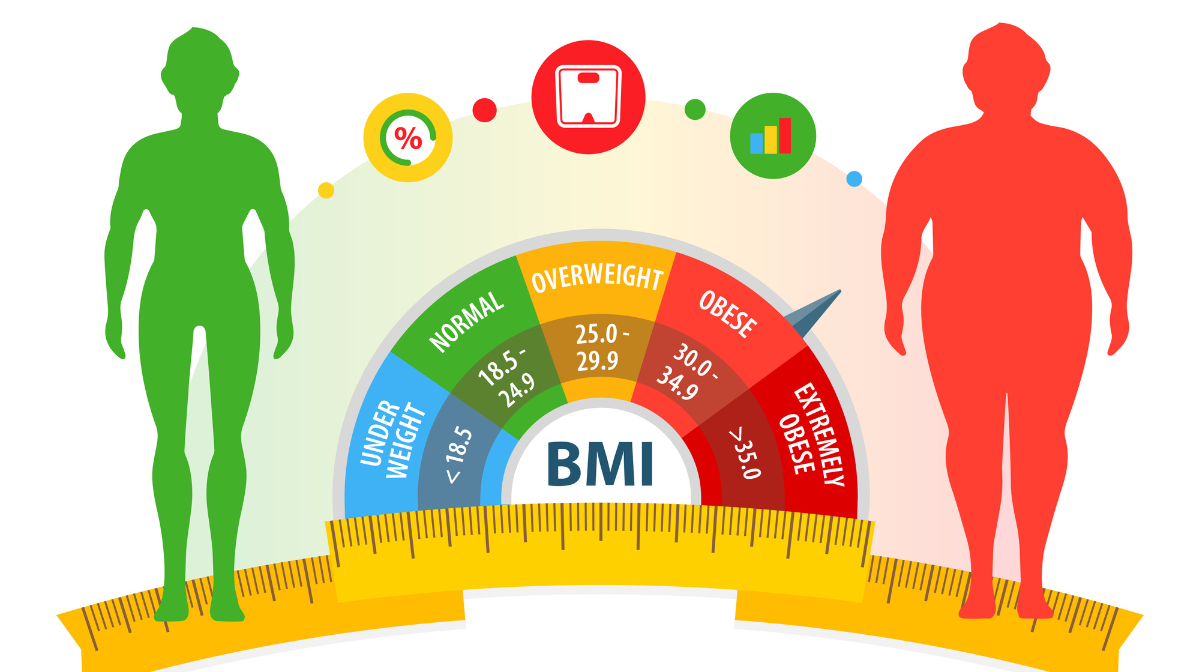A study by the American Cancer Society has found a startling relationship between body fat and cancer. Researchers discovered that an elevated body mass index (BMI) is linked to approximately 11 percent of cancers in women, and about 5 percent of cancers in men, in the United States. Overall, researchers estimate that high BMI may be responsible for 7 percent of all cancer deaths.

Relationship and Causes
Scientists have long theorized that several factors related to excess body fat and obesity may play a role in developing cancer.
- Sex hormones. In premenopausal women, the ovaries produce estrogen. This process changes during and after menopause; peripheral sites such as fat cells produce estrogens instead of the ovaries. Estrogen produced by fat cells is linked to an increased risk of ovarian, endometrial, and breast cancers.
- Insulin resistance: Obese individuals often develop hyperinsulinemia, a condition in which the body produces higher-than-normal levels of insulin and insulin-like growth factor-1 (IGF-1). Hyperinsulinemia can increase the risk of diabetes and cancer. Unchecked, diabetes and body fat can be contributing factors in the development of kidney, colon, prostate, and endometrial cancers.
- Inflammation. Fat cells produce what are known as inflammatory mediators, such as tumor necrosis factor-alpha and interleukin 6. These, in turn, cause oxidative stress. Excess macronutrients in fat cells stimulate the release of inflammatory mediators, leading to inflammation throughout the body. Over time, inflammation contributes to various health conditions and diseases including cancer.
- Other hormones. Certain hormones produced by fat cells affect the process of cellular growth. For example, production of the hormone leptin increases as a person increases fat stores. Leptin can cause abnormal cell growth. The hormone adiponectin is believed to protect cells from tumor growth. Adiponectin levels are lower in obese individuals, than in people who maintain a healthy weight.
Although the links between these factors and actual cancer growth is theoretical, there is good deal of research backing up the link between excess body fat and cancer.
One study examined data from ten groups of women, and found women who lost weight and kept it off were less likely to develop breast cancer than those who didn’t lose weight. Another study found that postmenopausal women who lost 10 percent or more of their body weight were less likely to develop breast cancer over time than women whose weight remained stable.
The collected data seems to point to a clear link between excess body fat and the risk of developing cancer. The link between a high BMI (a BMI of 25 and above is considered unhealthy, and over 30 is labeled obesity) and many other diseases is already well-established.
There are, in short, no lack of reasons—cancer risk being just the most serious—to lose weight if your BMI is high. It’s worth having a conversation with your primary caregiver and getting a referral to a licensed dietitian. If you BMI exceeds 40, talk to your medical provider about possible bariatric surgery or medications to reduce weight.
It becomes clear that lowering your percentage of body fat is not just a lifestyle concern, or something you can do to look and feel better—it just may be an issue of life and death.
Share some love if you like this post!







